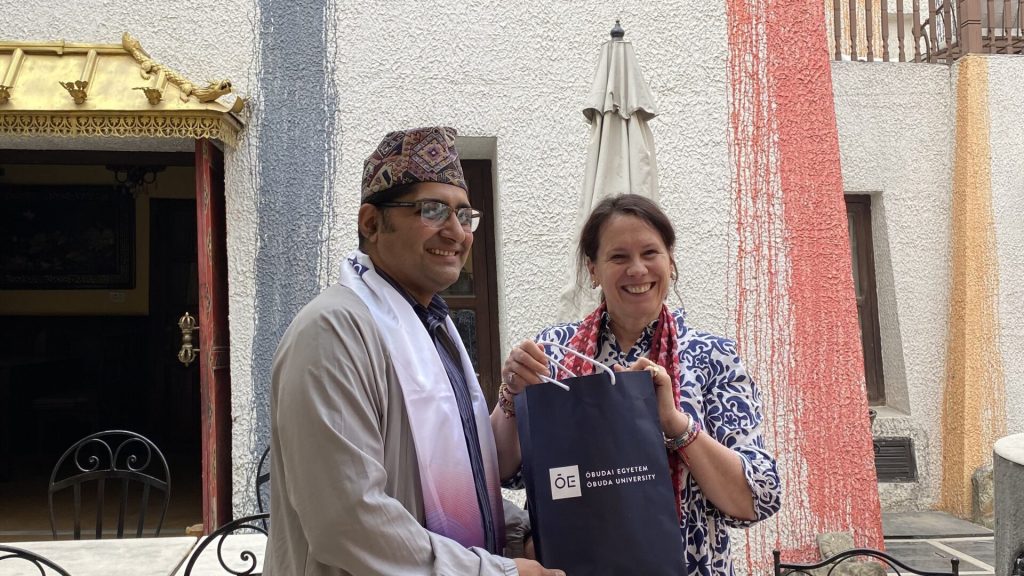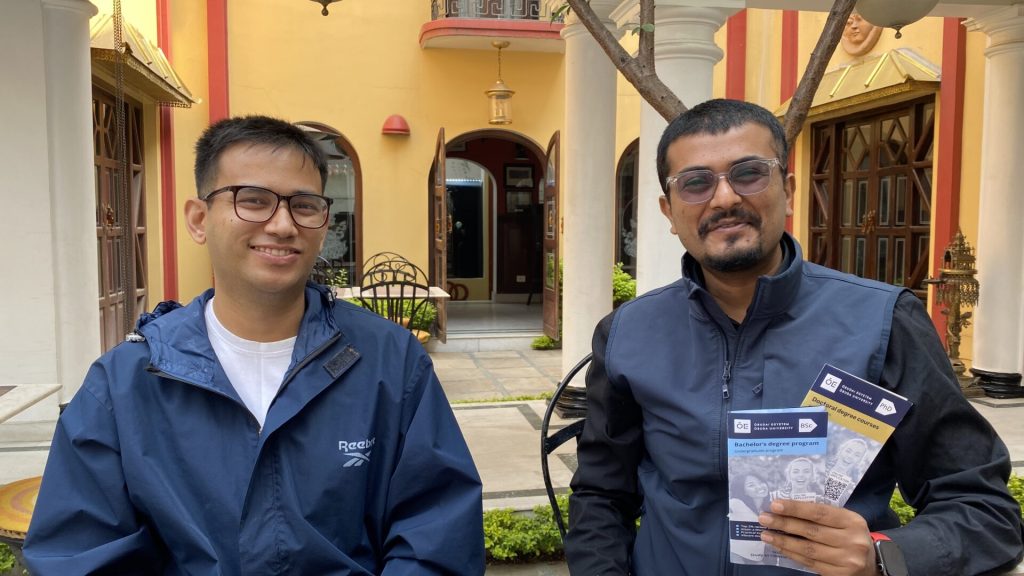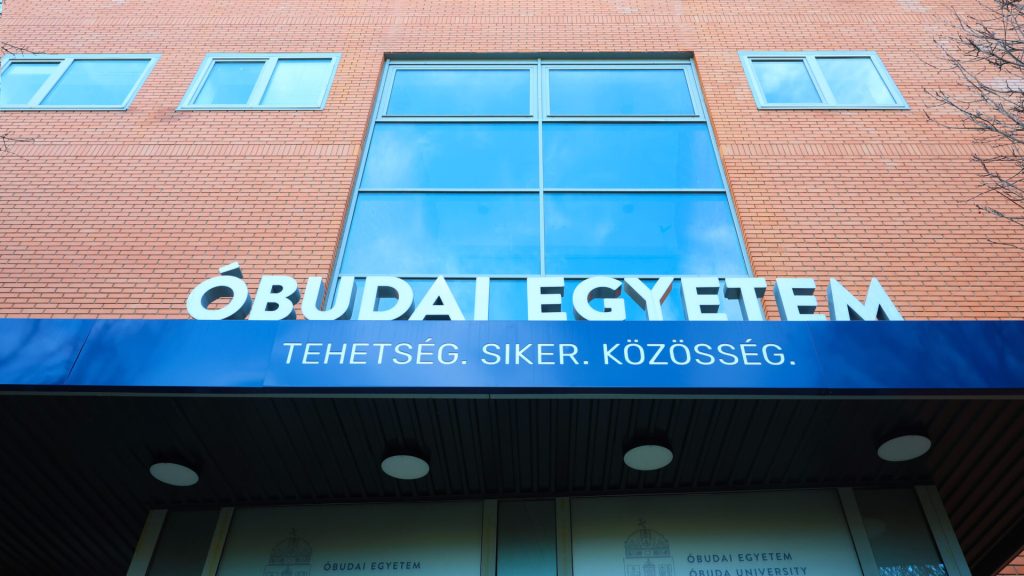Obuda University has taken an important step in expanding its international presence by strengthening academic and institutional cooperation in Nepal. The objective of the recent visit to Kathmandu was to deepen partnerships, enhance student and staff mobility, and build new pathways for recruiting fee-paying international students from South Asia.
The visit was led by Györgyi de Nemesker, an International Educational Advisor from the Mobility Department, whose relentless focus is to increase Obuda University’s global visibility and attract high-quality, self-funded students.
As part of the visit, Györgyi de Nemesker initiated discussions with Tribhuvan University to introduce the Pannonia Program, a Hungarian governmental initiative designed to support long-term academic cooperation, mobility, and joint research. The key objective was to build on the already well-established Erasmus partnership and to formally expand the collaboration through the framework of the Pannonia Program. This agreement marked a significant step forward in deepening institutional ties between the two universities.

Tribhuvan University, Nepal’s oldest and most prestigious higher education institution, serves more than 400,000 students and offers strong academic programs in IT, Civil Engineering, and Aerospace Engineering—all closely aligned with Obuda University’s academic profile. During a strategic meeting with the leadership of the Institute of Engineering, coordinated by Prof. Basanta Joshi, PhD, both parties agreed to explore joint initiatives in renewable energy, artificial intelligence, smart automation, and infrastructure development.
In support of Obuda University’s broader recruitment goals, Györgyi de Nemesker also held meetings with two leading student recruitment agencies in Kathmandu. One agency, previously focused on U.S. placements, expressed a clear interest in expanding its offerings to European destinations. The other agency, active in 14 countries, demonstrated strong regional reach and experience in promoting international education. Both confirmed that while the market is competitive, Hungary remains underrepresented—presenting an opportunity for growth, particularly in practice-oriented, English-taught programs in engineering and IT.

The visit also included a meeting with Ashish Devkota, a current MSc student at Tribhuvan University who spent a semester as Erasmus exchange student at Obuda University/NIK faculty. He shared highly positive feedback about the academic and cultural experience, further highlighting the value of mobility programs.
With the alignment of signing of the Pannonia Program agreement and new recruitment partnerships in development, Obuda University is well-positioned to attract top talent from Nepal and strengthen its academic footprint across South Asia.


